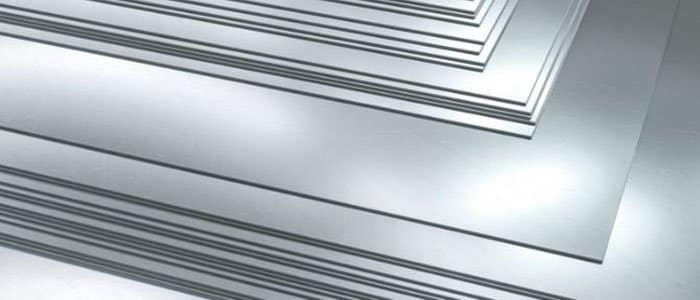Titanium’s role in modern military technology is not just significant; it’s foundational. This metal and its alloys are used from the ocean to space. They give the important performance needed for next-generation defense systems. This guide explores the reasons behind titanium’s military adoption, its key applications, and the specific alloys that make it all possible.
Why Titanium and Titanium Alloys are Indispensable in Defense
Three main factors constrain the selection of military materials: strength, weight, and toughness under extreme conditions. Titanium and its alloys excel in these areas for several key reasons:
- High Strength-to-Weight Ratio:This is titanium’s most celebrated attribute. It offers a strength comparable to many steels but at approximately 45% of the weight. For military hardware, this translates directly into enhanced performance—faster aircraft, longer-range missiles, and more agile naval vessels.
- High Corrosion Resistance:Military equipment operates in harsh environments, from saltwater seas to humid jungles. Titanium forms a stable, protective oxide layer, making it highly resistant to corrosion. This property ensures structural integrity and reduces long-term maintenance costs for naval and aerospace assets.
- Temperature Tolerance:Titanium alloys maintain their structural integrity across a wide temperature range, from cryogenic conditions to temperatures exceeding 600°C (1112°F). This makes them suitable for both high-speed airframe components and cryogenic fuel tanks.
- Stealth and Low Magnetic Signature:Titanium is non-magnetic, a crucial characteristic for naval vessels like submarines and minesweepers that need to avoid magnetic detection. Its ability to coat with radar-absorbent materials also makes it a valuable component in stealth aircraft design.
Key Military Applications of Titanium
The unique properties of titanium have led to its integration into nearly every domain of modern warfare.
Aerospace and Aviation
The aerospace sector is the single largest consumer of titanium in the military. Its use is critical for reducing weight while maintaining structural safety.
- Airframes:Titanium alloys are widely used in the manufacture of high-performance fighter jets, such as the F-22 Raptor and the F-35 Joint Strike Fighter, with titanium accounting for more than one-third of their total weight. Key components include bulkheads, wing spars, and fuselage frames, where the strength and lightweight properties of titanium alloys are crucial.
- Jet engine components: The extreme temperatures and rotational stresses inside jet engines require materials that can withstand these harsh conditions. Titanium alloys, with their combination of heat resistance and lightweight properties, are ideally suited for manufacturing compressor blades, discs, and housings.
- Spacecraft and Missiles:From rocket motor cases to structural components of satellites and hypersonic missiles, titanium’s reliability in extreme environments makes it the material of choice for space and missile systems.
The corrosive nature of seawater presents a constant challenge for naval engineering. Titanium’s resilience makes it an ideal solution.
- Submarine Hulls and Components:The Russian Alfa-class submarine was famously the first to use a titanium pressure hull, allowing it to dive deeper and withstand greater pressure than its steel-hulled counterparts. Today, titanium is used for propeller shafts, seawater piping, and heat exchangers, significantly extending service life.
- Aircraft Carriers and Surface Vessels:Critical components that are constantly exposed to seawater, such as pump and valve systems, benefit from titanium’s corrosion resistance, reducing downtime and maintenance.
Armor and Personal Protection
While heavier than steel, titanium can be used to create armor that offers a comparable level of protection at a reduced weight.
- Vehicle Armor:Titanium alloys are used in the construction of armored personnel carriers (APCs) and main battle tanks (MBTs) to provide ballistic protection without sacrificing mobility.
- Personal Body Armor:High-end personal armor plates for soldiers can utilize titanium to offer protection against high-velocity projectiles and shrapnel while being lighter than traditional steel or ceramic plates.
Applications of different grades of titanium
Not all titanium is the same. Different alloying elements create materials with specific properties tailored for particular applications.
- Ti-6Al-4V (Grade 5):This is the workhorse of the titanium industry, accounting for over half of all titanium usage. Its excellent strength, toughness, and weldability make it the most common alloy for airframe structures, jet engine parts, and marine applications. It is the go-to alloy for a vast range of military hardware.
- Ti-6Al-4V ELI (Grade 23):The “Extra Low Interstitial” version of Grade 5 offers enhanced ductility and fracture toughness. This makes it particularly suitable for critical applications where failure is not an option, such as in airframe bulkheads, armor plating, and deep-sea submarine components.
- Ti-3Al-2.5V (Grade 9):This alloy offers a good balance of strength, formability, and weldability. It is often used for tubing and hydraulic systems in aircraft, where its corrosion resistance and medium strength are highly valued.
At Daxun Alloy Co., Ltd., we provide a comprehensive range of titanium products, including titanium plates and other specialized alloys, designed to meet the rigorous standards of the military and defense industries. Our expertise ensures that our clients receive materials that deliver the performance and reliability required for their most critical applications.




